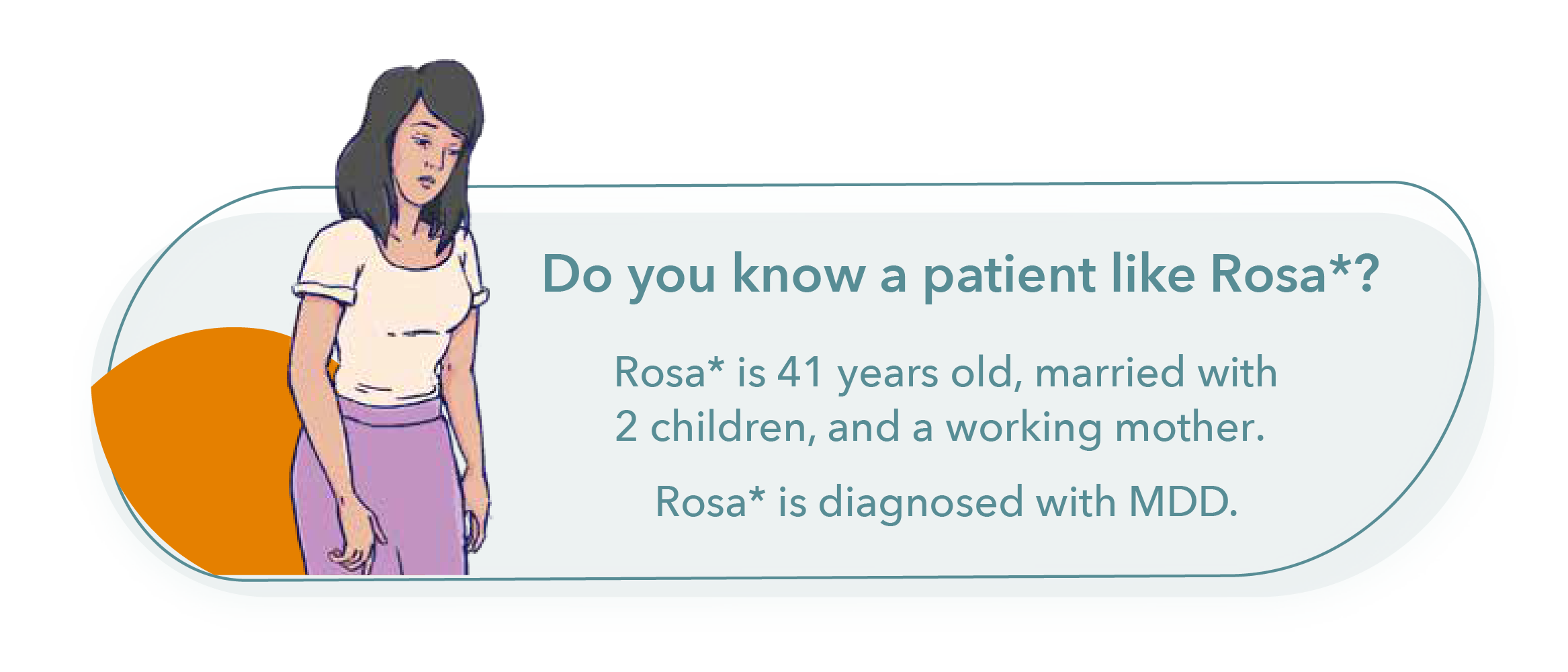More than mood: The broad range of MDD symptoms
Major depressive disorder (MDD) is a clinically heterogenous condition that requires the management of a broad range of symptoms beyond just mood.1,2 With symptoms spanning the emotional, physical and cognitive domains, the broad range of MDD symptoms is generally underestimated.2-4 Even in remission, patients with MDD receiving antidepressant treatment can still experience residual symptoms such as depressed mood, trouble concentrating, lack of energy or others.5,

She is currently receiving an SSRI treatment for her depression, but is still struggling with some residual symptoms and does not feel like her true self.
She is currently receiving an SSRI treatment for her depression, but is still struggling with some residual symptoms and does not feel like her true self.

* Fictitious patient. † Response defined as ≥50% reduction in QIDS-SR16 score from baseline. Data taken from the STAR*D study of 3671 patients treated at 41 different clinical sites.7,8 # Based on a study that assessed the willingness to expend effort for a reward during decision-making in individuals with current MDD, remitted MDD and healthy controls, n=99. Motivation was assessed by the EEfRT.10 ¶ Data based on a 3-year prospectively followed sample of initially depressed patients (n = 267). Cognitive problems included diminished ability to think or concentrate and/or indecisivenesss.7
Abbreviations:
EEfRT, Effort-Expenditure for Rewards Task; MDE, major depressive episode; MDD, major depressive disorder; QIDS-SR16, self-reported 16-item Quick Inventory of Depressive Symptomatology; SSRI, selective serotonin-reuptake inhibitor; STAR*D, Sequenced Treatment Alternatives to Relieve Depression
* Fictitious patient. † Response defined as ≥50% reduction in QIDS-SR16 score from baseline. Data taken from the STAR*D study of 3671 patients treated at 41 different clinical sites.7,8 # Based on a study that assessed the willingness to expend effort for a reward during decision-making in individuals with current MDD, remitted MDD and healthy controls, n=99. Motivation was assessed by the EEfRT.10 ¶ Data based on a 3-year prospectively followed sample of initially depressed patients (n = 267). Cognitive problems included diminished ability to think or concentrate and/or indecisivenesss.7
Abbreviations:
EEfRT, Effort-Expenditure for Rewards Task; MDE, major depressive episode; MDD, major depressive disorder; QIDS-SR16, self-reported 16-item Quick Inventory of Depressive Symptomatology; SSRI, selective serotonin-reuptake inhibitor; STAR*D, Sequenced Treatment Alternatives to Relieve Depression

